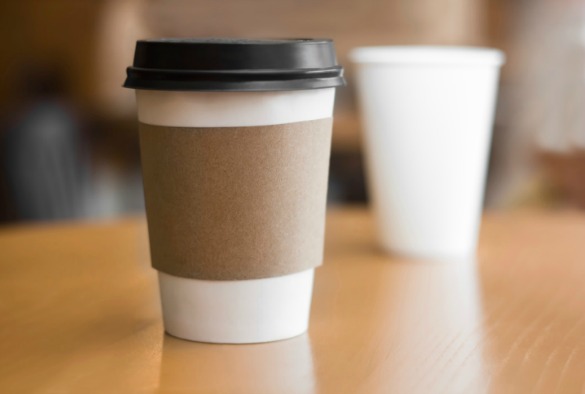The charity Action on Sugar, of which Professor Simon Capewell from the University of Liverpool is a founding member, is warning of the dangerously high sugar content of certain hot beverages found in many high street coffee shop chains.
Currently an estimated 1.7 billion cups of coffee sold each year in the UK from over 18,000 outlets and one in five of the population (including teenagers) visiting a coffee shop daily.
New research by Action on Sugar shows that 98% of the 131 hot flavoured drinks analysed would receive a ‘red’ (high) label for excessive levels of sugars per serving as sold. Also, 35% of the hot flavoured drinks contain the same amount or more sugars than Coca Cola, which contains nine teaspoons of sugar per can – equivalent to seven chocolate biscuits.
Perceived to be ‘healthy’
The research found that of the hot drinks tested the one with the most sugar in was Starbuck’s Hot Mulled Fruit – Grape with Chai, Orange and Cinnamon Venti (extra-large) – a mix of chai and fruit concentrate, topped with a cinnamon stick and a slice of orange – which contains 25 teaspoons of sugar, followed by Costa Coffee’s Chai Latte (large) which contains 20 teaspoons of sugar.
From the entire out-of-home hot drinks surveyed, 55% contain the equivalent, or more than, the maximum daily recommended amount of sugars for an adult and teenager (30g – 7tsp/d).
When it comes to hot drinks that are perceived to be ‘healthy’, a Starbuck’s Chai Tea Latte Venti (extra-large) contains 13 teaspoons of sugar per serving alongside Eat’s Chai Latte Big and Matcha Latte Big at 11 teaspoons.
Starbucks sells two sizes larger than a typical medium serving size of 340ml, at 454ml & 568ml – adding to the excessive sugar intake in many of its hot flavoured drinks. These serving sizes are much larger than those offered by its competitors. It is time coffee chains stopped serving extra-large cups of sugar-laden hot drinks.
Transparency
As well as being a founding member of Action on Sugar Professor Simon Capewell, from the University’s Institute of Psychology, Health and Society, is also Vice-President for policy for the UK Faculty of Public Health, a professor of clinical epidemiology at the University and a trustee for the UK Health Forum for Heart of Mersey.
Professor Capewell, said: “Sugar is increasingly being implicated as a specific causal factor for obesity, heart disease and being overweight. This research is yet another example of the enormous amount of sugar added to our food and drink.”
Nicola Close, Chief Executive of the Association of Directors of Public Health, said: “These results highlight the need for more transparency on sugar content and compulsory labelling of sugar content. Drinkers deserve to know how much sugar they are consuming.”
A Starbucks spokesperson, said: “Earlier this year we committed to reduce added sugar in our indulgent drinks by 25% by the end of 2020. We also offer a wide variety of lighter options, sugar-free syrups and sugar-free natural sweetener and we display all nutritional information in-store and online.”
For more information and to view the ‘worst offenders’ for each type of flavoured hot drink per serving please visit the Action on Sugar website.
